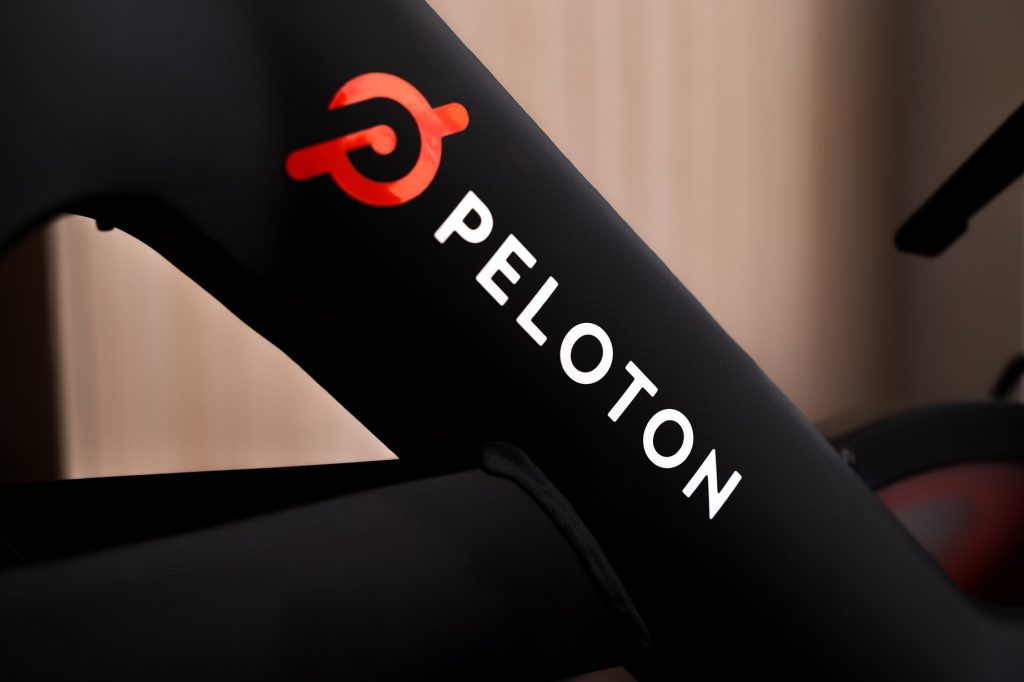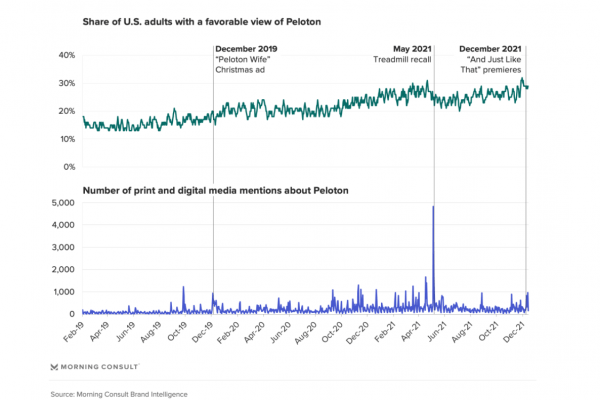Peloton’s year of bad headlines didn’t faze its consumers
From equipment recalls to an unfavorable product placement, research shows people think highly of the at-home exercise equipment brand.

Sometimes, a media frenzy about a brand’s perceived missteps is just that: A frenzy.
Take Peloton, for example.
Everyone remembers the “Peloton Wife” ad during the 2019 holiday season (how do you forget that stare?) which was met with equal amounts horror and humor. Ryan Reynolds’ follow-up Aviation Gin ad featuring the actress from Peloton’s spot only fanned the flames, with more than 10 million views of the tweeted video to date:
https://twitter.com/VancityReynolds/status/1203118775815622664?ref_src=twsrc%5Etfw
Peloton faced another public image crisis in May 2021 when the company issued a voluntary recall of one of its treadmill models following reports of safety issues and the death of a 6-year-old child.
And just several months later, the exercise equipment company made headlines again when one of its bikes was featured in the pilot episode of HBO’s “Sex and the City” revival. If you haven’t watched the episode or read the tweets, here is your spoiler alert: Mr. Big dies, gasping for breath, moments after stepping off his Peloton bike.
Yet again, Reynolds’ team at Maximum Effort delivered a spunky and savvy advertising comeback (which has since seemingly been scrubbed from the internet following allegations of sexual assault against the actor Chris Noth, who plays the character of Mr. Big.)
But consumers, on the whole, were undeterred—despite Peloton’s varied and not infrequent public relations crises over the last several years, Morning Consult data shows that the company’s favorability has remained relatively steady.

And while it’s true that Peloton stock prices suffer with these heavily-covered peaks and valleys—shares hit a 19-month low immediately after the “And Just Like That” episode aired in December—it seems that the company’s reputation with consumers wasn’t dinged, at least not in the long term.
Communicators could consider Peloton’s plight a case study in holding fast amid a PR crisis—while investors might panic, the Morning Consult research shows that consumers are willing to give brands a second (or third, or fourth) chance following what in the moment might feel like an unrecoverable scandal.
Peloton did have a year of less-than-ideal press, in some cases (the treadmill death) deservedly so. But it’s worth remembering that some “scandals” pale in comparison to others. Joanna Piacenza, Morning Consult’s head of industry intelligence, sums up this juxtaposition nicely:
When attitudes do shift, they’re likely temporary, such as with the United Airlines 2017 scandal involving a passenger who was forcibly removed from a flight, or Nike’s partnership with Colin Kaepernick, which tapped into the controversy surrounding the NFL free agent’s stance on social justice issues. One important exception is Facebook, whose constant drumbeat of serious blunders has resulted in a steady decline of brand favorability, although its user base has remained largely undeterred.
So, when reporters and opinion writers are snatching up every last bit of juicy bad news during a brand’s big mistake, batten down the hatches and hold firm. Address the situation with honesty and levity (if appropriate) and carry on. The consumers, it seems, will follow suit.







